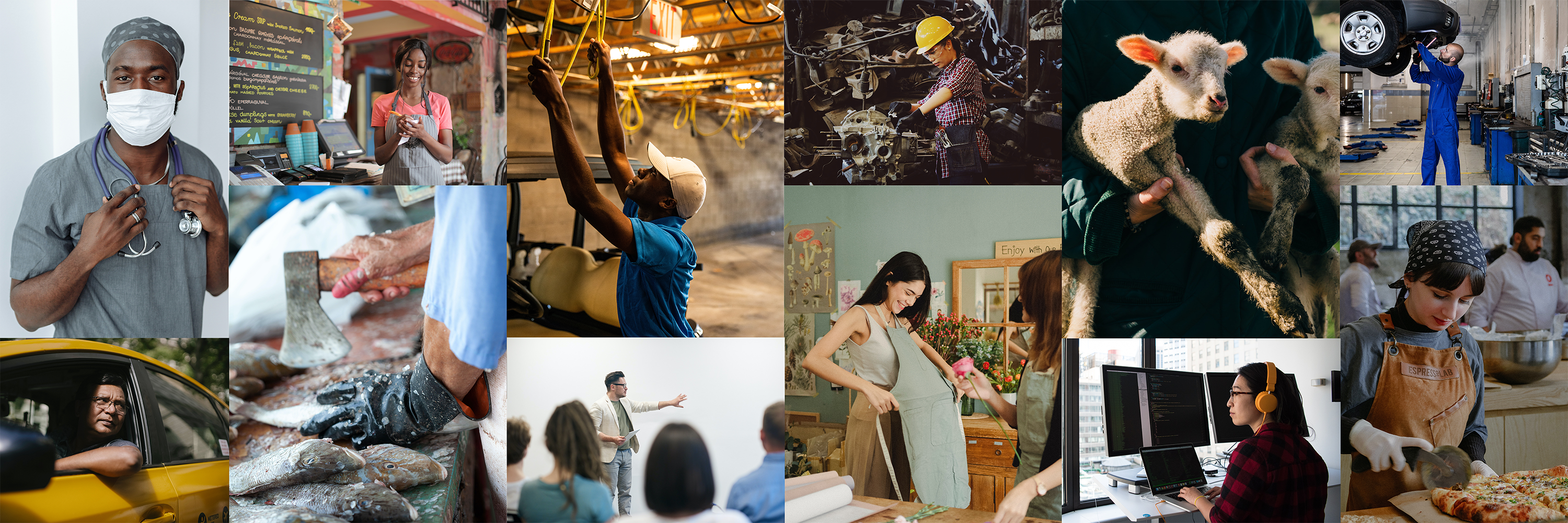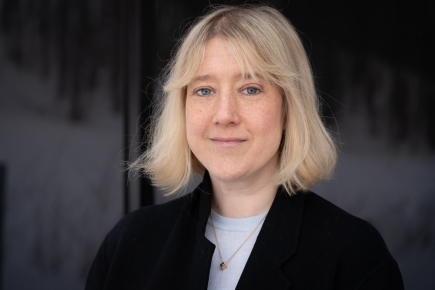Maria Olsson begins research stay at CAS
Maria Olsson has begun her research stay at CAS, where she will lead a team developing a more inclusive and culturally sensitive approach to measuring gender inequality across Europe.

This week marked the beginning of Maria Olsson's research residency at the CAS. Maria will be conducting her work in two phases—a month-long stay before summer and returning in the autumn semester to complete her project. Her research aims to address fundamental shortcomings in how gender equality is measured and understood globally.
'Towards a New and Culturally Sensitive Understanding of Gender Inequality'
"Our project, Towards a New and Culturally Sensitive Understanding of Gender Inequality, aims to address critical gaps in how gender equality is currently measured," Maria explains. While existing indices such as the Global Gender Gap Index have played important roles in tracking progress, they also have significant limitations. "These measures typically focus on a narrow set of domains, often overlook disadvantages faced by men, rely on assumptions rooted in Western contexts and traditional labor market structures, and lack both a psychological perspective and a data-driven, psychometric approach to index construction."
The team's goal is to develop a more inclusive measure of gender inequality—the Gindex—that captures inequalities experienced by both women and men across various dimensions. "During our research stay at CAS, we will refine the conceptual and methodological foundations of the Gindex, identify and operationalize relevant domains of inequality, and explore its psychometric properties and cross-cultural validity through collaborative workshops and expert-led sessions," Maria states.

The research approach is intentionally interdisciplinary and diverse. "Our team includes specialists in masculinity studies, cross-cultural psychology, gender-based labor market segregation, and psychometrics," she notes. The project brings together scholars who approach gender equality from different theoretical perspectives—researchers who might not typically collaborate—with the aim of building bridges across disciplines.
During the stay, the team will host a series of workshops and collaborative sessions involving international experts from psychology, sociology, and economics. Planned activities include methodological workshops led by invited experts on index development and psychometric testing, as well as a dedicated session with a data mining expert to explore how large-scale and alternative data sources can help address the field's core challenge of lacking globally comparable gender equality data.
Dedicated time for research
"One of the most valuable aspects of the CAS stay is the opportunity to engage in curiosity-driven research without the usual pressure of immediate deliverables," Maria reflects. "Much of our academic work is applied and tied to specific outcomes, so we rarely have the space to step back and explore broader, more conceptual questions—or, put differently, to engage in genuine intellectual risk-taking."
The CAS model proves particularly well-suited to this kind of work. "With teaching and administrative duties set aside, we can fully dedicate ourselves to the research—taking the time to explore new ideas, test assumptions, and work across disciplinary boundaries. That, in itself, creates the conditions for meaningful innovation," she explains.
Beyond the immediate research objectives, Maria sees the experience as crucial for future endeavors. "One of our team's longer-term goals is to develop a Horizon Europe synergy application aimed at expanding and globalizing the Gindex, and the work we do at CAS will be a crucial stepping stone toward that effort."
Personally, Maria looks forward to being part of the broader academic community at CAS. "Sharing lunches and informal conversations with leading scholars working on entirely different basic science projects is a rare and enriching opportunity. It's a chance to grow as a researcher, be challenged in new ways, and gain insights into fields I wouldn't typically encounter in my day-to-day work."
We look forward to following Maria and her team's progress during their stay at CAS and sharing their upcoming activities and findings as they work toward developing a more comprehensive understanding of gender inequality across cultures.